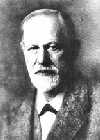All of this matches ordtak
James Olson (1930-)
James Olson (1930-)
James Olson (1930-)
James Olson (1930-)
James Olson (1930-)
James Olson (1930-)
James Olson (1930-)
James Olson (1930-)
 |
Antall ordtak er 2099244
varav 2120462 på nordiska
Ordtak (2099244 st) Søk
Kategorier (3944 st) Søk
Forfattere (201333 st) Søk
Bilder (4592 st)
Født (10498 st)
Døde (3319 st)
Datoer (9520 st)
Land (27242 st)
Idiom (4439 st)
Lengde
Topplistor (6 st)
Ordspråksmusik (20 st)
Statistik
Denna sidan visar ordspråk som liknar "All of this matches very well with previous observations that the amygdala is responsible for fear, anxiety and aggression. Now we're seeing that the neuroD2-deficient mice, when compared to normal littermates, show a profound difference in unconditioned anxiety levels as well as their ability to form emotional memories.".
Linkene lenger ned har ikke blitt oversatt till norsk. Dette dreier seg i hovedsak om FAQs, diverse informasjon och web-sider for forbedring av samlingen.
Här har vi samlat ordstäv och talesätt i 35 år!
Vad är ordtak?
Hur funkar det?
Vanliga frågor
Om samlingen
Ordspråkshjältar
Hjälp till!
varav 2120462 på nordiska
Ordtak (2099244 st) Søk
Kategorier (3944 st) Søk
Forfattere (201333 st) Søk
Bilder (4592 st)
Født (10498 st)
Døde (3319 st)
Datoer (9520 st)
Land (27242 st)
Idiom (4439 st)
Lengde
Topplistor (6 st)
Ordspråksmusik (20 st)
Statistik
Denna sidan visar ordspråk som liknar "All of this matches very well with previous observations that the amygdala is responsible for fear, anxiety and aggression. Now we're seeing that the neuroD2-deficient mice, when compared to normal littermates, show a profound difference in unconditioned anxiety levels as well as their ability to form emotional memories.".
Linkene lenger ned har ikke blitt oversatt till norsk. Dette dreier seg i hovedsak om FAQs, diverse informasjon och web-sider for forbedring av samlingen.
Här har vi samlat ordstäv och talesätt i 35 år!
Vad är ordtak?
Hur funkar det?
Vanliga frågor
Om samlingen
Ordspråkshjältar
Hjälp till!
 |
Linkene lenger ned har ikke blitt oversatt till norsk. Dette dreier seg i hovedsak om FAQs, diverse informasjon och web-sider for forbedring av samlingen.
Här har vi samlat ordstäv och talesätt i 35 år!
Vad är ordtak?
Hur funkar det?
Vanliga frågor
Om samlingen
Ordspråkshjältar
Hjälp till!
 |
